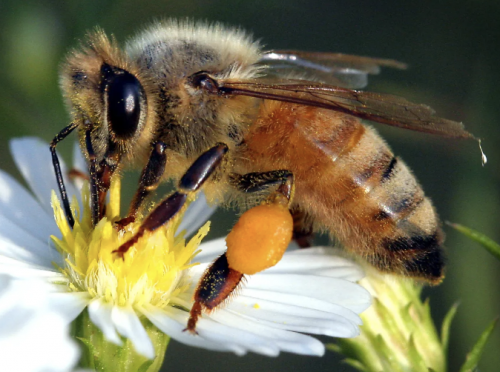
![]()

By Kayla Ngai
Although it has been repeated many times in the past years, “Save the Bees,” is still an important slogan. Recently, the UK authorized the emergency usage of neonicotinoids (more specifically known as thiamethoxam). This is a type of pesticide that poses a serious threat to bee populations, typically used on sugar beets to protect them from viruses spread by aphids. Due to yellow disease, crop loss has gone up to 80 percent, which is devastating to the industry as over 50 percent of sugar consumed in the UK is produced from England’s sugar beets.
It is important to note that thiamethoxam is still banned in the UK and is planned to be a short-term solution to the disease. Initially, thiamethoxam was banned due to the harm they cause honey bees, but now the policy has changed. However, as bees are crucial to the environment and are endangered in the UK, a different solution should be found to protect the sugar beet plants. Even though neonicotinoid is meant to be a short-term solution, it is challenging to limit the spread of pesticides (even with strict treatment) to the natural environment.
Besides the contribution of honey to our diet, bees are crucial as pollinators. Barnaby Coupe, Land Use Policy Manager at The Wildlife Trusts, asserts: “Without bees, we would be unable to produce much of the food we take for granted.” Bees assist and play a vital ecological role within the food chain and overall web. Through pollination, they help many plants reproduce which helps sustain the land, us, and other critters. According to Euronews.green, bees indirectly help other animals by propping up more plants for shelter. Clearly, bees are beneficial to everyone. Different organizations, like Friends of the Earth, have called out the government for discounting the roles of bees and not listening to the experts authorizing neonicotinoids for usage.
Because of arguments coming from both sides, there is much debate over the reintroduction of neonicotinoids in agriculture. Despite all this information on the benefits of bees, on January 24th, 2023 it was decided that thiamethoxam was needed if yellow disease affected 63 percent of crops. Those campaigning, such as the Friends of the Earth group, have called out the government for being “incredibly brazen.” The UK Expert Committee on Pesticides (ECP) has not approved stating: “In light of the risk assessment conducted, a reduction in survival of honey bees and impacts on homing flight ability (which also influences survival of foragers) could occur.” Even Wildlife Trust lawyers are legally challenging the government unless they can prove that their ruling is lawful.
On the other hand, Farming Minister Mark Spencer said the emergency authorization was taken after ‘careful consideration’ and as ‘a necessary measure to protect the industry.’” Though the defense of the pesticide may be valid, there are concerns about prioritizing profit over biodiversity. As bees will continue to boost the ecosystem in the long run, I believe the government should try to alleviate the yellow disease without harming the already unstable bee population. Currently, the sugar board is looking for long-term solutions and will hopefully succeed without endangering the environment.
The UK needs to find other resolutions besides neonicotinoids to protect sugar beets from disease. There are proven results that “good husbandry, natural pest control and use of resistant varieties, help ensure sugar beet can be grown without threatening our bees, as many farmers in the EU already realise.” Due to thiamethoxam being a short-term solution, it seems like the government is attempting to find an easy way out—which should not be the case. We rely on bees to sustain ourselves and our environment, but their numbers are dropping. It is essential that we prioritize their survival.




